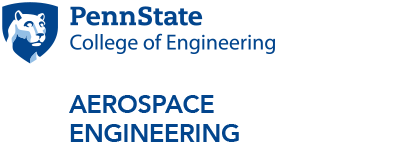Journal Articles
- Micah A Wyssmann, James G Coder, John S Schwartz and A. N. Thanos Papanicolaou, 2025, "Volumetric characterization of spatially organized features of Reynolds stress anisotropy in the vicinity of submerged model boulders", Physics of Fluids, 37, (2)
- Jimmy-John O.E. Hoste, Nicholas N Gibbons, Tobias Ecker, Chiara Amato, Doyle Knight, Artemii Sattarov, Olivier Thiry, Jean-Pierre Hickey, Fahri Erinc Hizir, Tolga Kokturk, Neil Castelino, Valerio Viti, Megan A Roldan, Steven Qiang, James Coder, Robert A Baurle and Jeffrey A White, 2025, "A review of Reynolds-averaged Navier–Stokes modeling for hypersonic large cone–flares", Physics of Fluids, 37, (2)
- James G Coder, Benjamin LS Couchman, Marshall C Galbraith, Steven R Allmaras and Nick Wyman, 2024, "Output-based mesh adaptation for high-speed flows", Computers and Fluids, 273
- Blair Basom, Mark Miller, Constantinos Kandias, James Coder, Sven Schmitz and Mark Maughmer, 2024, "Inviscid Analysis of Horizontal Axis Wind Turbines Using Distributed Vorticity Elements", Journal of Renewable and Sustainable Energy
- Micah A Wyssmann, James G Coder, John S Schwartz and A. N. Thanos Papanicolaou, 2024, "Turbulent junction flow characteristics upstream of boulders mounted atop a rough, permeable bed and the effects of submergence", Experiments in Fluids, 65, (1)
- Carl F Ollivier-Gooch and James G Coder, 2023, "Fourth AIAA High-Lift Prediction Workshop: Fixed-Grid Reynolds-Averaged Navier–Stokes Summary", Journal of Aircraft, 60, (6)
- James Coder, 2023, "Accuracy of High-Order, Discrete Approximations to the Lifting-Line Equation", The Aeronautical Journal, 127, (1315)
- Hector Ortiz-Melendez, Ethan Long, Christopher Colletti, George Toth, Cody Perkins, Kathryn Keely, Phillip Ansell and James G Coder, 2023, "Design and Characterization of High-Lift Capabilities for Slotted, Natural-Laminar-Flow Airfoils", Journal of Aircraft, 60, (4), pp. 19
- Forrest J Mobley, Tristan D Wall and James G Coder, 2023, "Computational Characterization of Unsteadiness and Turbulence in Rotor Hub Wakes", Journal of the American Helicopter Society, 68, (1)
- Ethan A Vogel and James G Coder, 2022, "A Novel Entropy Normalization Scheme for Characterization of Highly Compressible Flows", Theoretical and Computational Fluid Dynamics
- Jared A Carnes and James G Coder, 2022, "Analyzing the Near-Wall Behavior of the Langtry-Menter Transition Model", Flow, Turbulence and Combustion, 108
- Jared A Carnes and James G Coder, 2022, "Numerical Investigation of Unsteady Boundary Layer Transition on a Dynamically Pitching Rotor", Journal of the American Helicopter Society, 67, (1)
- Hector D Ortiz-Melendez, James G Coder and Arvin Shmilovich, 2022, "High-Lift Computational Strategy for Slotted, Natural-Laminar-Flow Airfoils", Journal of Aircraft, 59, (4)
- Jared A Carnes and James G Coder, 2022, "Effect of Crossflow Transition on the Pressure-Sensitive-Paint Rotor in Hover", Journal of Aircraft, 59, (1)
Conference Proceedings
- Julie B Coder, James G Coder and Mark D Maughmer, 2025, "Aerospace Engineering Education in the Era of Generative AI", Montreal, Quebec, Canada

